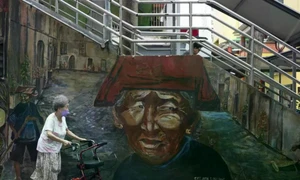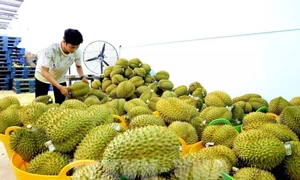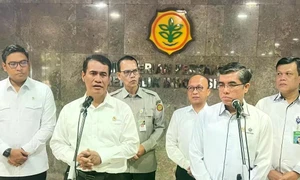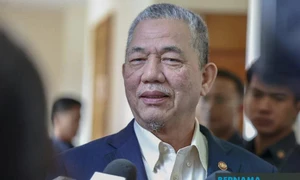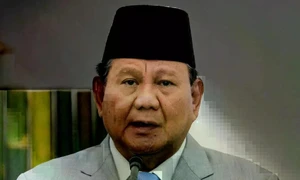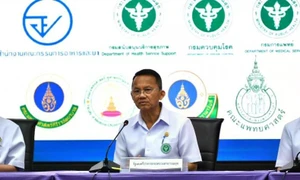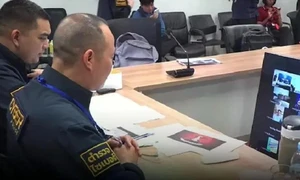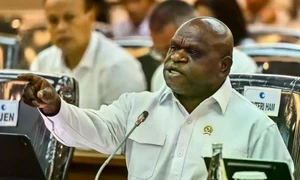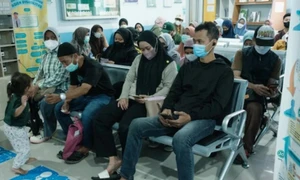
Italy passed a bill that criminalises couples who seek surrogacy abroad on Wednesday, following a seven-hour debate in Parliament.
The bill was initially presented by Carolina Varchi, a member of parliament for the far-right Brothers of Italy party, and supported by the party chief and Prime Minister Giorgia Meloni.
The measure, promoted by the Brothers of Italy and its hard-right coalition partner, Lega — who argued that it protects women's dignity — extends a surrogacy ban that has been in place since 2004.
Italians seeking surrogacy in countries such as the US or Canada, where the practice is legal, can face up to two years in jail and up to €1 million in fines.
What are the penalties and what was the debate?
The existing law says that "anyone who carries out, organises or advertises the commercialisation of gametes, embryos or surrogacy" could face three months to two years in prison and a minimum fine of €600,000.
The amendment extends the scope of the law to punish Italians who seek surrogacy abroad.
Lega lawmakers had proposed an additional amendment to increase the penalties to 10 years in prison and a €2 million fine. However, the executive and other political groups rejected the proposal.
For the conservative ruling coalition, the matter is seen as a way of protecting both the surrogates abroad, who they claim are exploited, and the relationship between biological parents and their children.
"In the case of surrogate motherhood, the woman does not provide an organ, but gives birth to a child. The woman is thus reduced to an incubator, interrupting the relationship between mother and child," Brothers of Italy MP Gianni Berrino said during the bill's discussion.
“Motherhood is absolutely unique, it absolutely cannot be surrogated and it is the foundation of our civilisation,” Lavinia Mennuni, another Brothers of Italy senator, said. “We want to uproot the phenomenon of surrogacy tourism.”
While some questioned whether this puts Italian citizens under double jeopardy, lawmakers in favour of the legislation said it was only aimed at those who broke the already existing domestic laws.
"Unlike what has been said, Elon Musk or Elton John would not be prosecuted if by chance they were to find themselves in our country," Forza Italia Senator Pierantonio Zanettin said.
Opposition parties slammed the legislation. Anna Rossomando of the centre-left Democratic Party called it "unreasonable and completely out of line with the rulings of the Constitutional Court and the European Court of Human Rights."
Alessandra Maiorino, vice president of the populist Five Stars (M5S) party in the Senate, slammed the law as "a vulgar speculation to score a pure propaganda point off the skin of little girls and boys."
New law's downsides
The law's implementation presents many unclear points, such as how evidence necessary for conviction and sentencing might be collected.
There is also the issue of whether the proceedings could be opened retroactively, which clashes with Italian law prohibiting it if it's unfavourable to the citizens.
Filomena Gallo, secretary of the Luca Coscioni Association, a group in favour of freedom of scientific research, said the new legislation was "an unjust and discriminatory law, legally inapplicable as it ignores the principle of double criminality, which is the basis of criminal law."
Another major stumbling block that sprung from the law's lack of clarity is how the state will regulate birth certificates issued abroad.
Italian administration is notorious for long delays in processing births of its citizens abroad, and this might compound the misery of newly minted parents who live outside of the country.
Additionally, activists said the bill disproportionately impacts same-sex parents in a country where same-sex marriage is also banned.
Several lawmakers and LGBTQ+ activists protested in front of the Senate to oppose the law, some holding banners that read: “Parents, not criminals."


